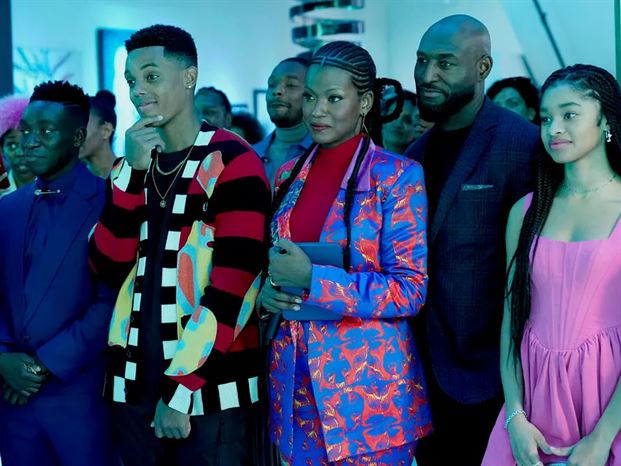Through “Bel-Air,” a reimagining series of the hit 90s sitcom “Fresh Prince of Bel-Air,” viewers of both hit television shows quickly see the duality of a comedy turned to a modern-day American drama series.
The sophomore season reflects mental health, the art of deception, perplexities of relationships and the value of the Black community being there for one another, but also at times when the community falls short of that, *cough, cough* Drew (Nicholas Duvernay) and Erika Baker (Diandra Lyle).
Moreover, the show reflects the significance of inclusivity in the educational system and the vogue style of the 90s and 2000s trends infused with Black culture and a contemporary twist.
The show picks up with Will Smith’s (Jabari Banks) worlds colliding as he finds himself at a crossroads in his life, juggling with either limiting himself or growing into a new facet of himself in Bel-Air. Viewers are also left with Philip Banks, a.k.a. “Uncle Phil” (Adrian Holmes), and Will still in their prideful ways, not speaking to each other after Will found out compelling information about his father. But he still exudes that “Fresh Prince” confidence in the midst of adversity. Maybe it’s a “Philly thang,” as Jalen Hurts, quarterback of the Philidelphia Eagles, would say.
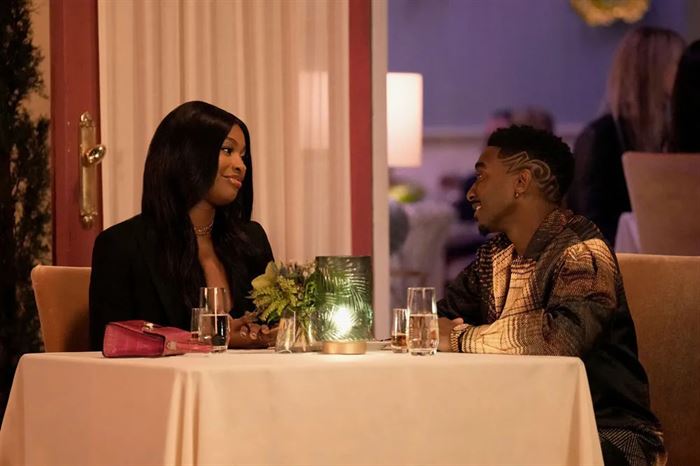
Hillary Bank's (Coco Jones) and Jazz (Jordan L. Jones) relationship is put to the test throughout the season. Photo courtesy of Peacock
Director Morgan Cooper additionally aims to highlight topics of pride and manipulation, which are imbued throughout the show, particularly in men such as Doc Hightower (Brooklyn McLinn). Doc has one thing on his mind: to benefit himself even if it means putting other people’s lives at stake. This jeopardizes Will’s relationship with his first love, Lisa Wilkes (Simone Joy Jones). In light of relationships, Jazz (Jordan L. Jones) is suffering from intimidation from Larmarcus Alton, Hillary Bank’s (Coco Jones) ex-boyfriend (Justin Cornwell), who challenges his relationship with Hillary. The season shows how one sometimes doesn’t realize what they have until it’s gone.
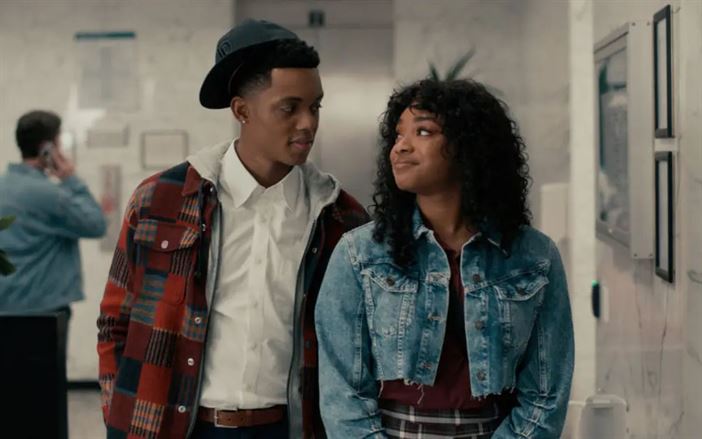
Lisa Wilkes (Simone Joy Jones) and Will Smith (Jabari Banks) still find a way to be there for each other. Photo courtesy of Peacock
Some scenes are corny, but the fictional characters experience challenges throughout their life as the show elicits real, powerful lessons and societal issues that characters like Ashley Banks (Akira Akbar) and her teacher, Mrs. Hughes (Tatyana Ali), make an effort to solve by any means necessary. The NAACP Image Award multi-nominated series highlights how Black leaders being taught in the educational system are often pushed away from the list of novels to read.
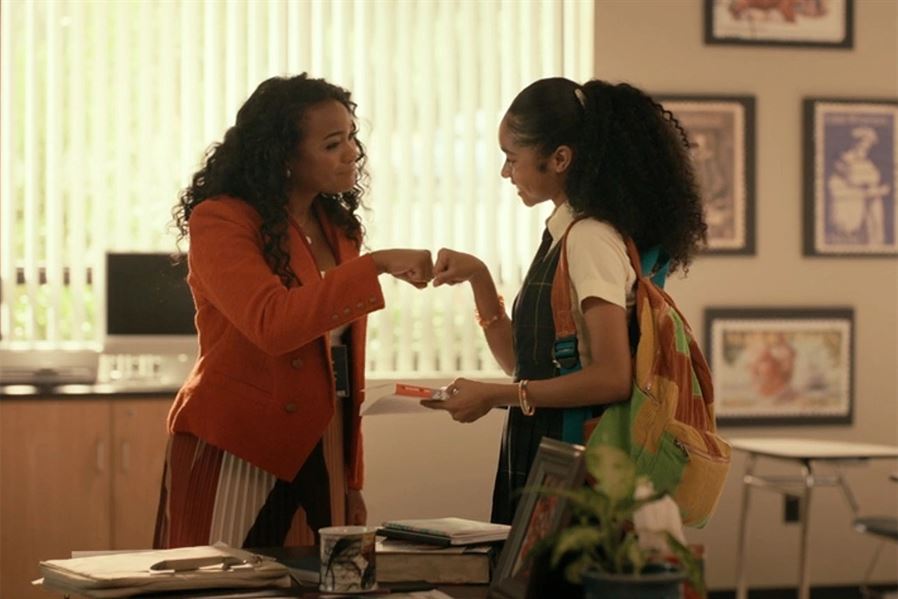
Ashley Banks (Akira Akbar) and her teacher, Mrs. Hughes (Tatyana Ali) highlight the goal to make the educational system more inclusive. Photo courtesy of Peacock
Despite the impediments she goes through, Vivian Banks (Cassandra Freeman) a.k.a. “Aunt Viv,” serves as a testimony to Black women as she puts her passions first instead of her husband’s while still being the rich auntie, mother and wife people feel comfort to be in the presence of.
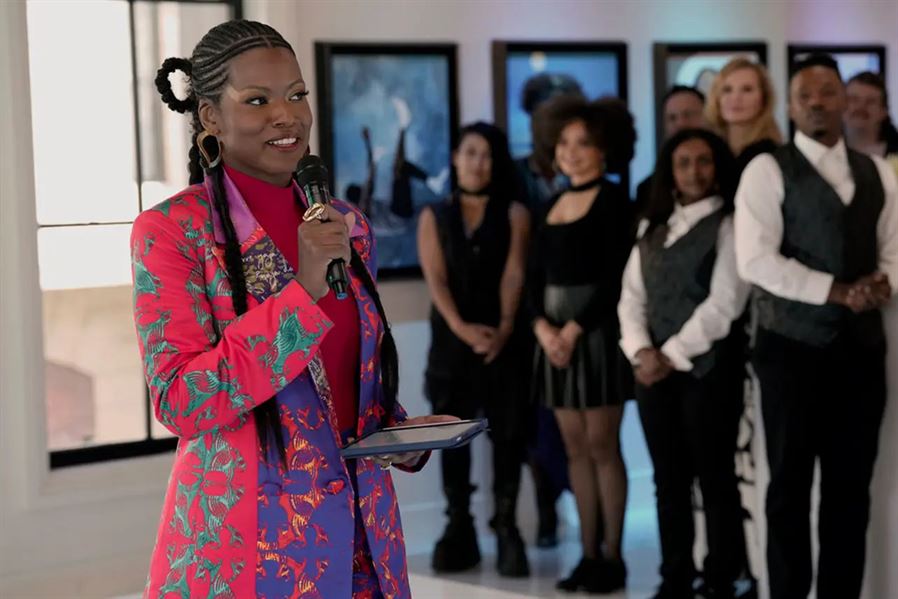
Vivian Banks (Cassandra Freeman) puts her passion for art in full effect this season. Photo courtesy of Peacock
In light of powerful Black leaders, Hillary, being the boss lady she is, continues to grow her business while being challenged on how to navigate working with other people. She continues to be a powerful force within her business, embodying a modern-day Hillary with style inspired by 80s and 90s fashion. While the influencer is based on the original character, Hillary has her own uniqueness and blossoms into her own identity.
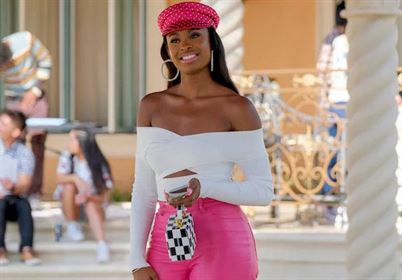
The fashion depicted in the show is inspired by '90s and 2000s fashion.
Photo courtesy of Peacock
QueenSylvia Akuchie, the designer of the show, matched the characters’ personalities to their attire while projecting on screens something that isn’t often seen. Akuchie, being of Nigerian descent, incorporates bold colors and prints inspired by African culture. The cultural inspiration isn’t limited to African influence, as the personality of Jackie (Jazlyn Martin), an Afro-Latina from Inglewood, California who is unapologetically herself, is reflected in her fashion.
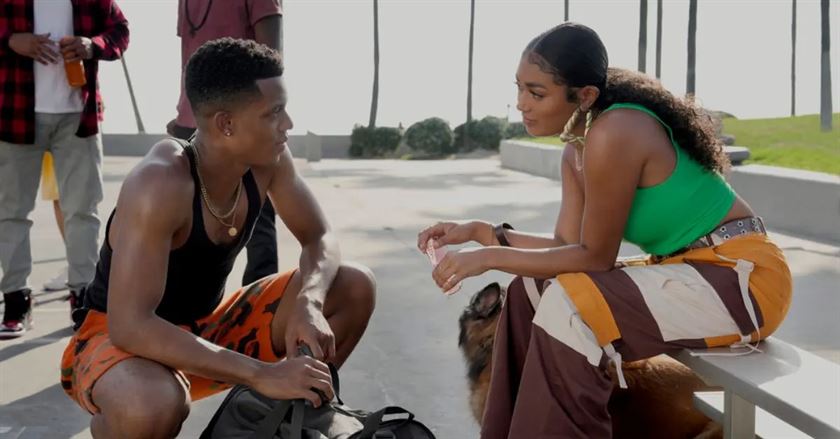
Jackie (Jazlyn Martin) plays a role in Will Smith's (Jabari Banks) goals. Photo courtesy of Peacock
Though notable characters like Ashley and Jackie are very much themselves, someone who fell short previously in season one is Carlton Banks (Olly Sholotan). Like Will, Carlton finds himself at a crossroads with his identity while he undergoes the pressures of being perfect all the time.
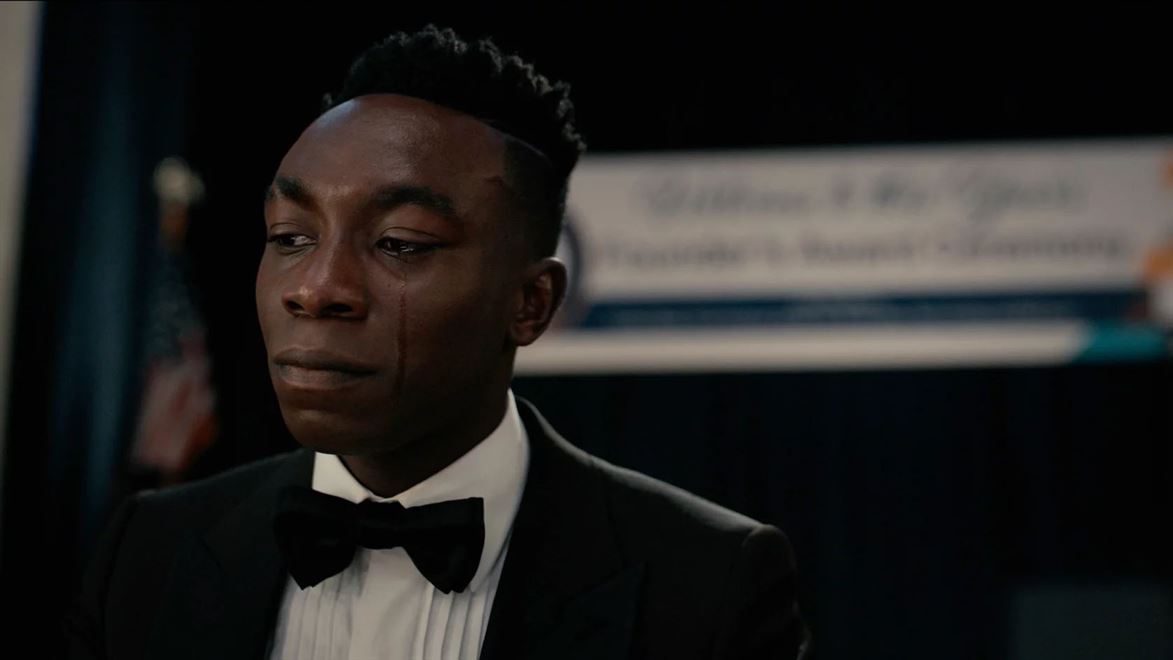
Carlton Banks (Olly Sholotan) plays a role in bringing to life the encumbrances mental health issues bring. Photo courtesy of Peacock
But season two takes a turn when he taps into his Blackness and finds himself challenged in his identity as he gets more involved with the Black Student Union. He struggles with the dichotomy of staying with his white friends who are a bad influence or growing into the man he is destined to be, leading to a battle with mental health.
The show depicts how mental health is just as important as physical health and the impact vulnerability could make, especially in the Black community. Nonetheless, the show also illustrates how the solution to this plight is easier said than done and how people who are suffering from mental health can resort to a hopeless place. The results that follow this predicament stress the importance of others being there for those who endure these mental health issues – especially when it is something new and unfamiliar.
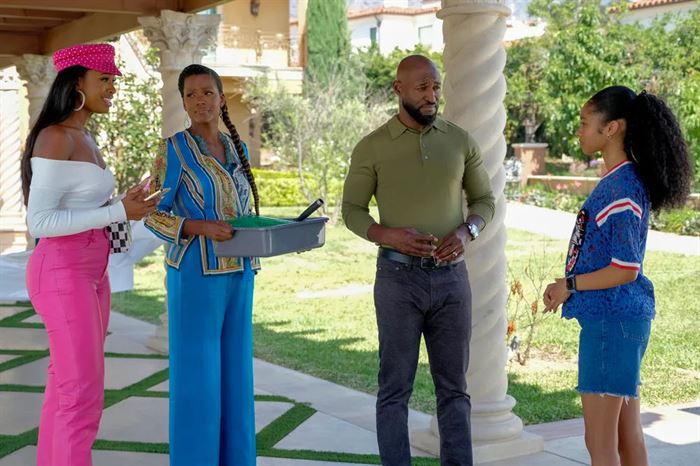
The series is breaking up what you would traditionally see on your screen. How often do you see an all-Black cast grace your screen with class instead of consistently seeing them in the “Black struggle?” While it is undeniably important to continue to do this (as “Bel-Air” highlights topics such as these), it’s equally important to see us in elite positions and working hard toward our goals to become the successful, educated people we aspire to be and what our ancestors dreamed of.
The bottom line is “Bel-Air” gave what it needed to give. The cherry on top is an episode called, “Excellence is Everywhere.” It’s giving royalty. It’s giving Black excellency. The show encapsulates subjects that are prevalent in society, portrayed by an all-Black cast – and it is just scratching the surface in the entertainment industry.

